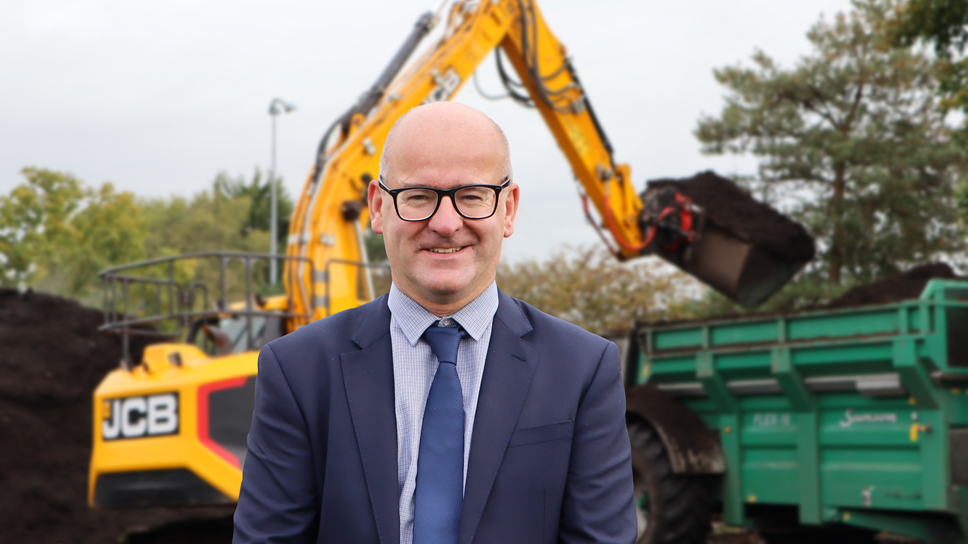
Groundbreaking carbon reduction technology piloted in Lancashire
A new way of storing thousands of tonnes of CO2 in the ground beneath our feet is being piloted in Lancashire.
Lancashire County Council is one of the first councils in the UK to trial the large-scale use of biochar, a charcoal-like substance that is made by heating agricultural and forestry crop residues.
When they die, plants and trees decompose and release the CO2 they have captured back into the air. Biochar can last for thousands of years in the soil so it is an effective way of storing carbon and helping to fight climate change.
Biochar also helps to improve soil quality and moisture retention, with the potential to make land more productive for growing grass, crops and trees so increasing the rate at which they remove CO2 from the air.
The pilot is taking place on 6ha of farmland on a former landfill site at Midgeland Road in Fylde, and at Chisnall Hall near Chorley where compost, produced from the county's garden waste collections, is also being used to plant 1ha new woodland to boost the carbon capture.
You can see the progress at Chisnall Hall in the video below.
The county council secured more than £150k from the AgriCaptureCo2 project to fund the pilot.
County Councillor Shaun Turner, cabinet member for environment and climate change, said: "Ensuring we can capture more CO2, which is produced when fossil fuels are burned, is an important part of our plans to tackle climate change.
"We know that trees play an important role, but it's not always possible to plant trees on many of the fields across Lancashire.
"By using biochar, we can capture much more carbon using the ground beneath people's feet. We're piloting this scheme on two agricultural sites, but if the scheme is successful, we could potentially use it across the county on fields, sports pitches, in parks and other open spaces
"We are also looking into turning any trees felled because of ash dieback disease into biochar, so the carbon they already contain is not lost back into the atmosphere.
"Innovative schemes like this are a key part of our plans to make Lancashire a greener county."
The county council is running this pilot to research the potential of biochar on behalf of all the councils in Lancashire.
Nik Bruce, the county council's principal nature recovery officer who is leading the project, said: "Biochar is essentially charcoal to be put into the soil.
"This is a way of locking carbon into the ground for thousands of years. With this approach, in 10-13 years we could store as much CO2 as is captured by a new native broadleaved woodland in 50 years.
" Here at Chisnall Hall, we are also using compost created from Lancashire's green bin collections to help establish new woodlands. You can see that by using biochar we can help create forests above the ground, and store carbon beneath your feet."
For more information about action the county council is taking to protect the environment, visit its Climate Change webpage.
Notes to editors
- The county council is running the scheme in partnership with other organisations, including Bangor University, which is carrying out soil testing before and after the project to measure how effective the pilot is.
- Lancashire County Council is the lead AgriCaptureCO2 project partner on behalf of the 14 district and unitary authorities in Lancashire.
- This is the only public authority partnership in the AgriCaptureCO2 project.
- The aim of this pilot is to investigate how the public sector can learn from regenerative agricultural practices, and how these can be applied to public land to enable councils to use their land holdings to help meet their net-zero objectives.
- For more information about AgriCaptureCO2, visit agricaptureco2.eu
